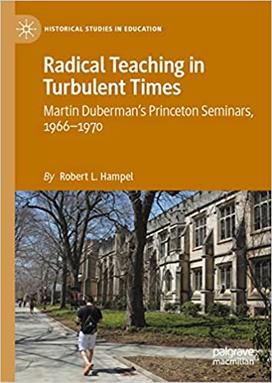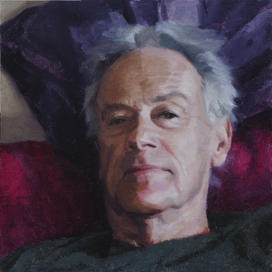Remembering Professor Martin Duberman’s Radical Pedagogy
Duberman took a radical, authentic approach to education
“You can’t grow into adulthood when you’re fed pabulum all your life …” — Martin Duberman, 2009

As the journalist and author Masha Gessen noted in The New Yorker several years ago, “Martin Duberman is a national treasure.” He has been a finalist for a Pulitzer Prize and the National Book Award; he has won an Award for Scholarly Distinction from the American Historical Association, in addition to a special award from the National Academy of Arts and Letters. His play In White America earned a Drama Desk Award in 1963; it also launched the careers of actors Moses Gunn and Gloria Foster. And now, to his distinguished standing as a prize-winning historian, biographer, playwright, gay activist/scholar, novelist, and cultural critic, he is finally acknowledged and honored as the courageous, iconic educator who emerged while teaching at Princeton in the late 1960s.
More than 50 years ago, Duberman’s undergraduate course — “History 308: American Radicalism” — was Princeton’s first completely ungraded undergraduate course. Fed up with conventional, “assembly line” undergraduate education, Duberman sought to explore a more genuine engagement of the learning process — inviting his students to not only risk participating at a deeper, more intimate level in their education and learning, but also to take responsibility and challenge themselves accordingly. What distinguished this seminar was not just that the teacher dropped all requirements (no papers, tests, grades, required reading, or attendance — in addition to asking course participants to call him “Marty”), but that students would be invited to take charge, even choosing the topics from week to week.
“The chief purpose of the experiment, as I saw it,” wrote Duberman in his 1969 book, The Uncompleted Past, “was to seek new ways of establishing the kind of emotional climate of trust and honesty (so absent in most seminars) which would in turn make possible an authentic exchange of ideas.” That exchange was further enhanced at the time by Duberman’s own personal exploration of group psychotherapy: “Only when the necessity to please others is removed, can the main job of self-evaluation begin,” he noted later in the book.

What gave me a bit of courage as I knocked on Duberman’s office door was that he, too, as he had stated in his Daedalus article, had been taken by Summerhill and Neill’s “candor” and “his demonstration that children flourish when they are allowed freedom.” That was enough for me to risk my mostly raw intellect: Who was Martin Duberman? The meeting did not disappoint. In retrospect, it became what so-called transpersonal psychologists, such as myself, refer to as “a major life event” — a moment in one’s destiny that has a never-to-be-forgotten impact, in this case a connection and friendship that has endured for more than 53 years.
As our relationship evolved, I saw an opportunity on the horizon. I was not a history major, though certainly most fascinated by the arena and particularly by someone who so thoroughly commanded it. It was, however, the evolution of human consciousness, as Albert Einstein expressed the process, that most intrigued me. As I contemplated my undergraduate thesis in the early fall of 1969, I asked Marty if he would consider whether he would allow me to participate in both sections of his seminar on American Radicalism that semester, not only as a full participant, but also in the role of researcher. I had spent the previous summer at Harvard in an intensive group dynamics course, and I was eager not only to continue my relationship with Marty, but also to assess how interpersonal dynamics in an undergraduate seminar could enhance the multidimensional arena of experience and learning in an academic setting. I would devise a set of questions with a rating scale that would take no more than 10 minutes to answer at the end of each seminar meeting. The process would be anonymous. Based on the participants’ responses, I could then begin to “quantify” (however simplistically), how participants were experiencing what was taking place.
Intrigued and smiling, the good professor agreed my idea was sound. I still had to clear the topic with my advisor in the psychology department. With that hurdle overcome, and permission to have Marty as my chief thesis advisor, he and I began a new trajectory. The story of my undergraduate thesis — History 308 Revisited: The Experience of an Educational Experiment — was born and would eventually come to fruition the following May in 1970.
Nearly 50 years later, my topic stimulated author Robert Hampel to contact me in 2019 to discuss the endeavor of my thesis. Intrigued by Duberman’s courage and vision, Hampel had not been the first — about 10 others had preceded him over the years. But Hampel’s effort has now finally captured the Duberman odyssey: the pioneering teacher he became at Princeton — someone who cared deeply throughout his career about giving his students the tools and experience for a life of learning and substance.
Peter Janney ’70 has been a licensed psychologist, educator, and consultant for over 40 years. He is also the author of Mary’s Mosaic: The CIA Conspiracy to Murder John F. Kennedy, Mary Pinchot Meyer and Their Vision for World Peace. He lives by the sea in Beverly, Massachusetts.









No responses yet